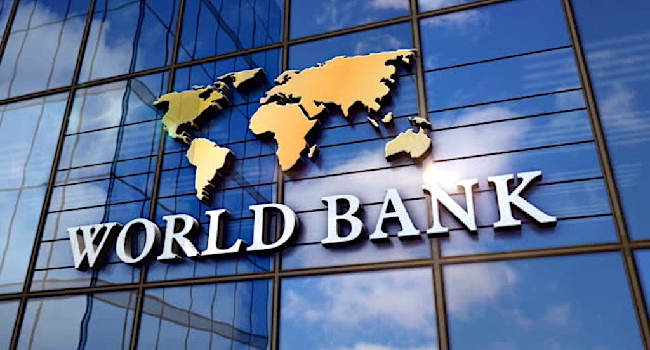Business
World Bank echoes Peter Obi’s concern over debt servicing

In 2023, Nigeria’s debt servicing will gulp 123.4 per cent of Federal Government’s revenue, the World Bank’s Lead Economist for Nigeria, Alex Sienaert, has projected, expressing the same concern as raised by Presidential candidate, Peter Obi.
Sienaert made it known in a presentation titled ‘Nigeria Public Finance Review: Fiscal Adjustment for Better and Sustainable Development Results.’ for the month of November.
World Bank also revised its debt servicing projection for 2022, stating that 100.2 per cent of Federal Government revenue would be gulped by debt servicing.
This is below the 102.3 per cent previously projected for the end of 2022 in the World Bank’s Africa’s Pulse report, which is a biannual analysis of the near-term macroeconomic outlook for the region.
The report, published in April and October during the World Bank/IMF Spring and Annual Meetings, had raised concerns over Nigeria’s public debt.
Ripples Nigeria had reported two days ago that Nigeria’s total debt stock rose to N44.06 trillion as of September 2022, according to the Debt Management Office (DMO), from N39.56 trillion at the end of last year.
Debt servicing to affect productive spending
In his presentation, Sienaert said debt servicing would not give room for productive spending, so borrowing was not the solution to Nigeria’s problem.
READ ALSO:World Bank President, David Malpass, addresses Nigeria’s debt restructuring claim
“Borrowing more is not the solution: debt costs are rising rapidly, squeezing non-interest spending,” he said, adding, “Debt servicing has surged over the past decade and is expected to continue increasing over the medium-term, crowding out productive spending.”
FG has significantly increased its borrowings, as the World Bank had revealed that in 2021, $9 billion was obtained from International Monetary Fund (IMF) credit and Special Drawing Rights (SDR), against $2.58 billion in 2010.
Also, the World Bank, in a report on ‘poorest countries eligible to borrow from the World Bank’s International Development Association (IDA)’ had stated that Nigeria and other low and middle-income economies were already at high risk of debt distress or already in distress.
Nigeria’s debt servicing worries Peter Obi
Aside from the World Bank, Obi, who is the Presidential candidate of Labour Party, had stated that the FG was spending beyond its revenue, stating in his manifesto that 116 per cent of government revenue was disbursed on debt servicing.
Obi said debt servicing overshooting revenue comes at a period tax contributions to gross domestic product (GDP) falls below Africa’s average ratio. Nigeria’s tax to GDP ratio is 6 per cent, falling short of the African average of 17 per cent.
According to the former Anambra governor, Nigeria’s debt-servicing ratio and debt to revenue ratio will drastically reduce if he’s elected as President in 2023 Presidential election, as his administration will implement radical economic policies.
Join the conversation
Support Ripples Nigeria, hold up solutions journalism
Balanced, fearless journalism driven by data comes at huge financial costs.
As a media platform, we hold leadership accountable and will not trade the right to press freedom and free speech for a piece of cake.
If you like what we do, and are ready to uphold solutions journalism, kindly donate to the Ripples Nigeria cause.
Your support would help to ensure that citizens and institutions continue to have free access to credible and reliable information for societal development.
























